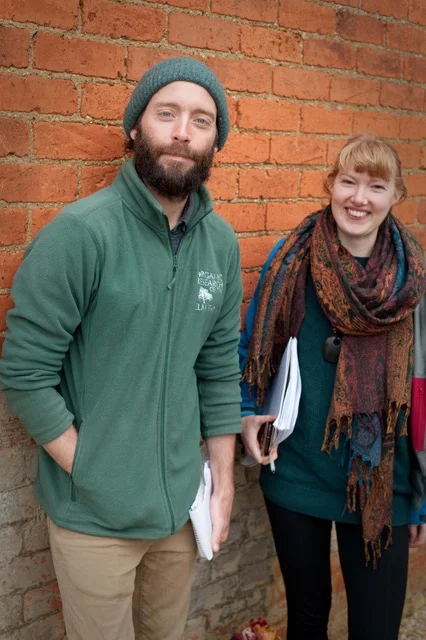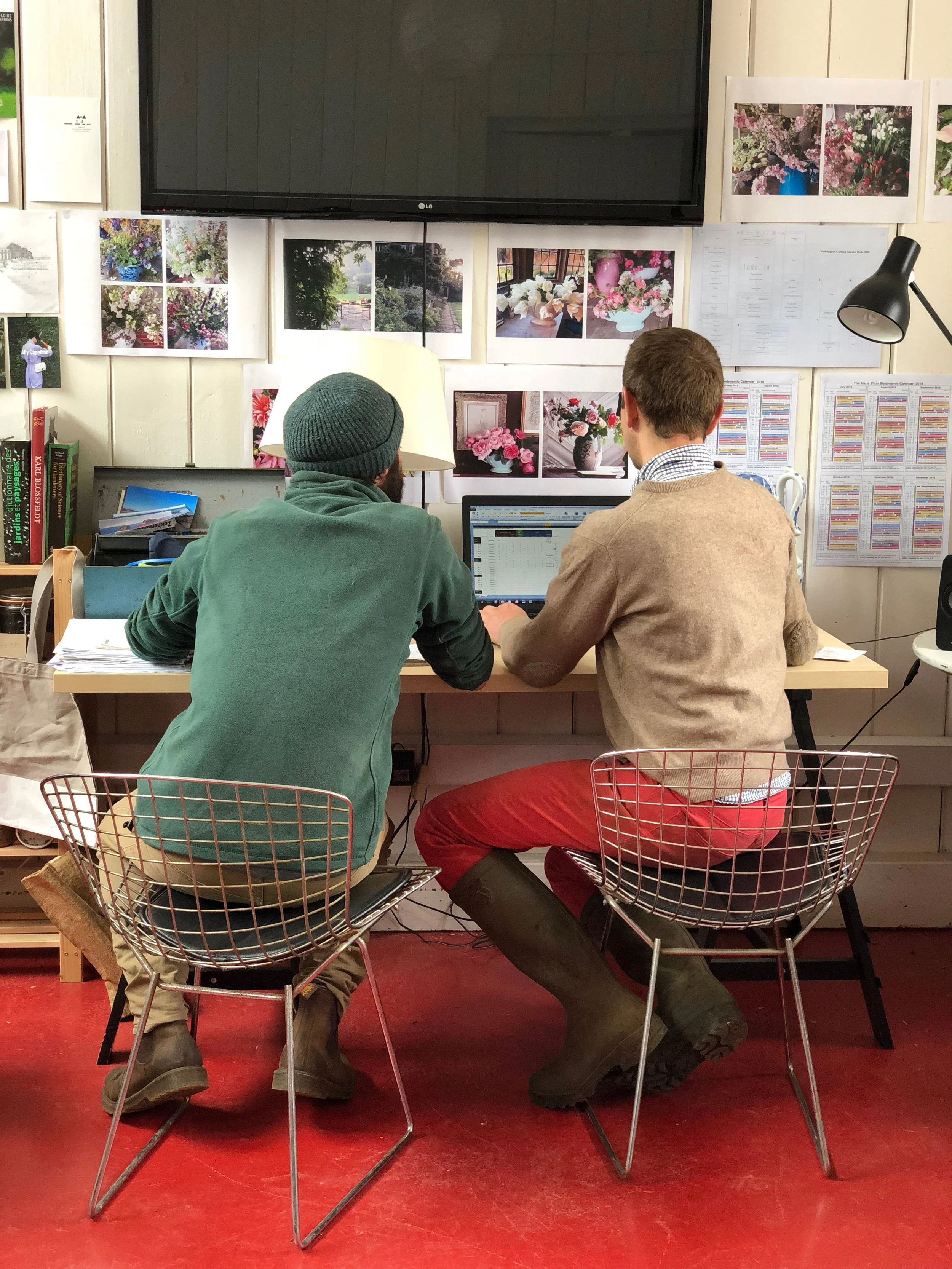the land gardeners
We began trialling the aerobic composting method in September 2015. We were lucky enough to have been supported by Innovative Farmers in particular Dr Dominic Amos and Dr Jasmine Black who helped us to set up the trials. We grew sweet peas in two mediums, our Climate Compost and Klasmann compost, as the industry best practice.
“The results show that the Land Gardeners compost should basically act like rocket fuel for the crops! Pretty high octane stuff!” - Dominic Amos, results summary.
We also provided our innovative trialists from around the world with individual recipes for composting based on the materials they had available to them. We were particularly keen to test the method in different contexts (varying materials available for composting, different climates, large scale and mircroscale farming) to produce compost with the ability to form the highest quality humus and transfer this humifying ability to agricultural soils, to re-establish the ability of soils to detoxify, hold nutrients and carbon and supply all substances needed by plants.
Our Results:
We discovered that the Controlled Aerobic Composting Method produced the following encouraging results:
Crop Results Summary (Wardington, Summer 2018) x 2
Sweet Pea Plant Height
K=Organic bought compost, LG = Land Gardeners “Controlled Aerobic Compost”, C= Control (not compost)
On the 18th May, plants growing in the Organic bought compost plot were on average 2% shorter than the plants growing in the control plot. The plants growing in the LG compost plot were 36% taller.
This result suggests the LG compost may be better at helping plants to establish and grow quicker than the organic bought compost, possibly due to more readily available crop nutrients (See compost analysis)
On the 11th June, plants growing in the Organic bought compost plot were on average 15% taller than the plants growing in the control plot. The plants growing in the LG compost plot were 22% taller. Coefficient of Variation (Ratio of standard deviation to mean) at this assessment date for each treatment shows LG heights less variable (19%) than the organic bought compost(29%) or the Control (40%)
By the 20th of July, plants growing in the Organic bought compost plot were on average 12% taller than the plants growing in the control plot. The plants growing in the LG compost plot were 33% taller. Coefficient of Variation at this assessment date for each treatment shows LG heights less variable (19%) than the organic bought compost (29%) or the Control (36%)
Results suggest that the LG compost may be effective in increasing final crop height compared to no treatment and also in comparison to the organic bought compost.
sweet pea flower length
Average flower length as measure on 20th July 2018. Error bars show SEM. Each Average made up of 2 flower lengths per plant and approximately 12 plants per plot.
Results suggest that LG compost may be used to increase flower length. Average observed flower length for plants grown in the LG compost 47% longer than plants grown in the control. Flowers of plants grown in the Organic Bought compost 30% longer than the control.
In the photo below the flowers grown in the Land Gardeners compost (on the far right hand side) were longer than those grown in the organic bought compost (on the left hand side) and those grown with no compost (central).




